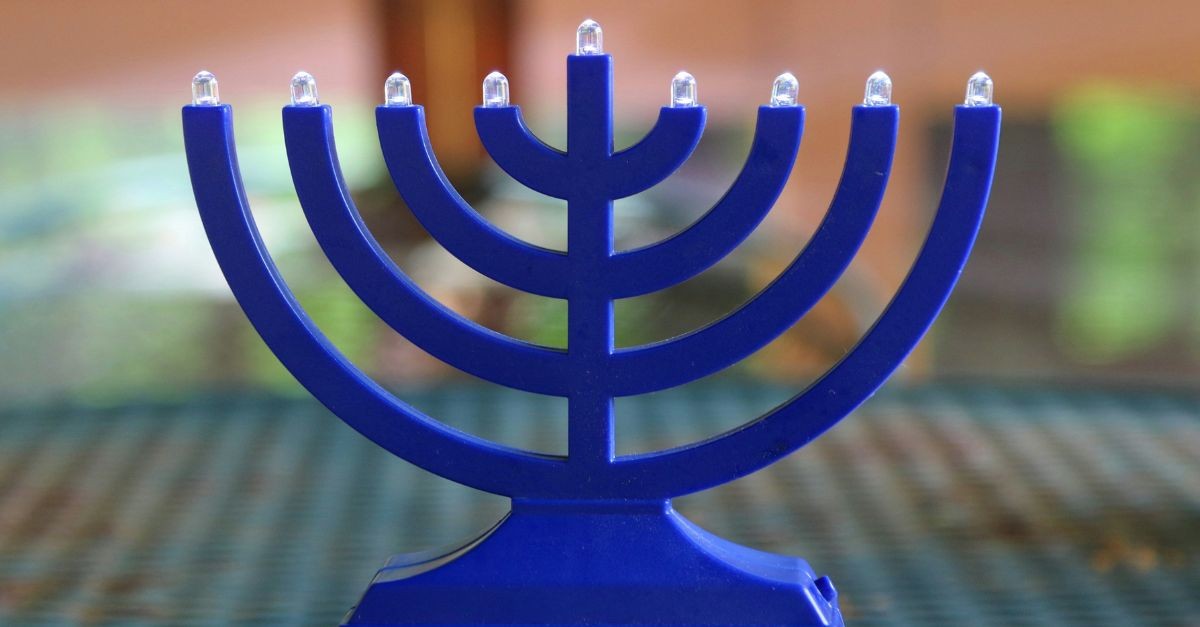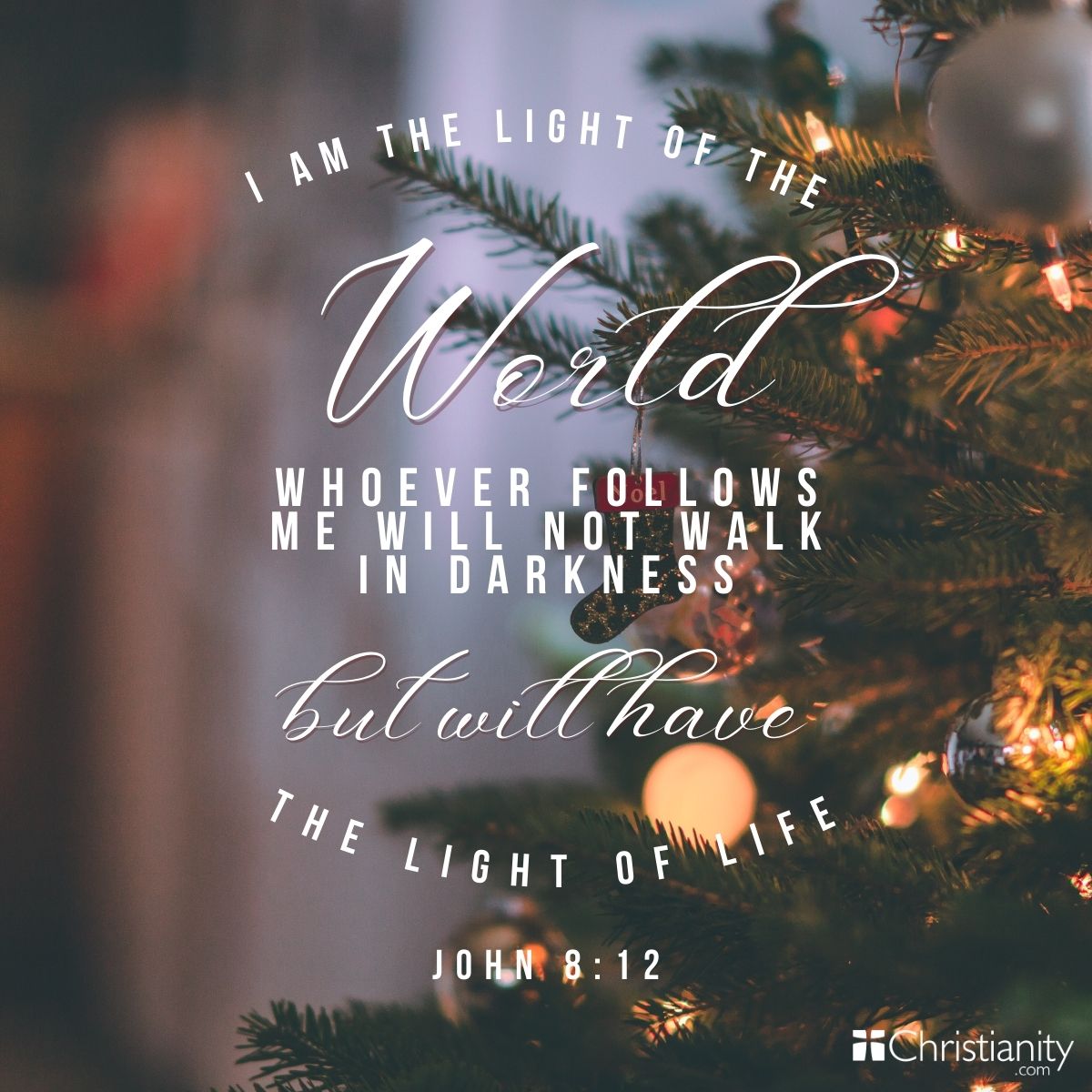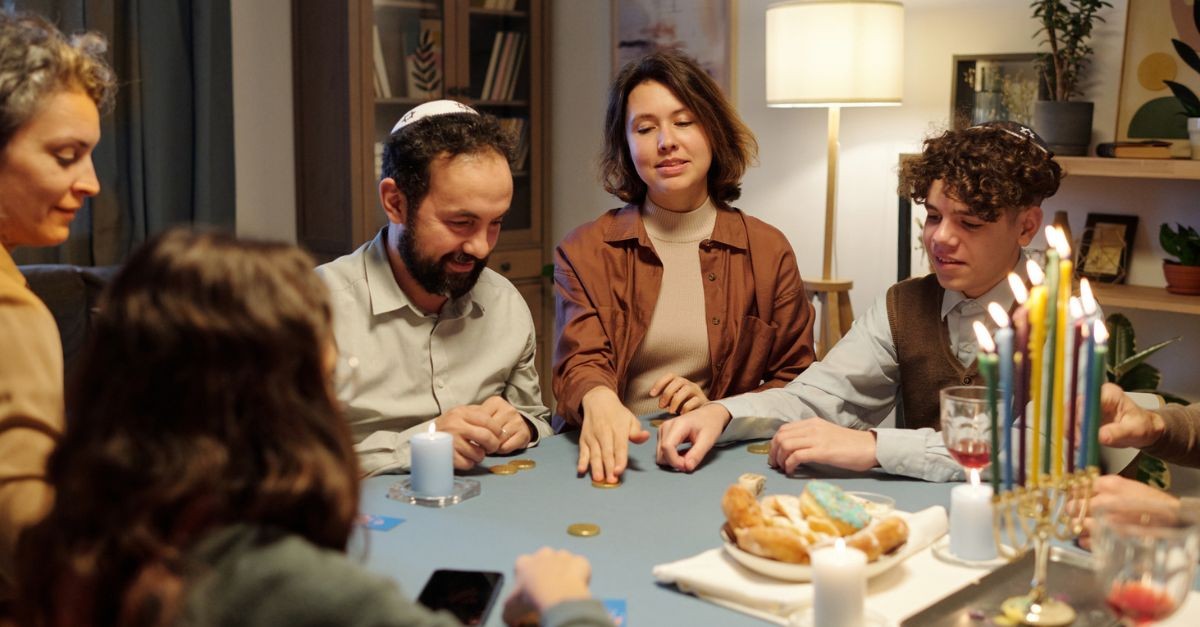Inspiration from Zion Host
Updated Nov 22, 2024
Despite significant differences religiously and theologically that make Hanukkah and Christmas completely different and even incompatible, there are multiple common themes that do emphasize similar values.
Hanukkah and Christmas are two widely celebrated holidays that occur around the same time of year, usually in late November or December for the former and always on December 25 for the latter. This year, Hanukkah begins on Christmas. Because of differences between the lunar Jewish/Biblical calendar and the solar Gregorian calendar, the two holidays overlap only about 40 percent of the time.
Although they are rooted in different religious traditions—Judaism for Hanukkah and Christianity for Christmas—there are notable similarities in their historical contexts, symbols, rituals, and modern celebrations despite vast differences in what they celebrate. For those who view Hanukkah as a Jewish Christmas, that’s not correct at all. First and foremost, Hanukkah predates the birth of Jesus and was celebrated by Jesus by nearly 200 years.
Hanukkah and Christmas both commemorate significant religious events that are central to Judaism and Christianity, respectively. However, the nature of what is being celebrated differs substantially. Indeed, it would be more common and relevant for Christians to celebrate Hanukkah than for Jews to celebrate Christmas.
Both holidays celebrate themes of light, hope, family, and community. Despite their distinct theological and historical backgrounds, the shared themes and customs between Hanukkah and Christmas create interesting points of convergence.
Photo Credit: SWN Design
Slide 1 of 7

1. The Origin of the Holiday
What Does Hanukkah Commemorate?
Hanukkah, also known as the Festival of Lights, commemorates the Maccabean Revolt, a Second Century BCE uprising against the Seleucid Empire. The Jewish people, led by the Maccabees, rebelled against the forced imposition of Hellenistic customs and desecration of the Temple in Jerusalem. This was a Biblical battle of the significance of David vs. Goliath: the underdog Jewish leader against a powerful and much larger enemy. After recapturing Jerusalem, they found enough pure oil to light the menorah (the Temple’s candelabrum), which was essential for restoring Temple service for just one day. Miraculously, the oil lasted for eight days, giving time to produce additional pure oil. This is why Jews celebrate the holiday by lighting the Hanukkah menorah (chanukiah) for eight nights, with vivid symbolism of light and darkness, religious freedom, divine intervention, and a military victory that preserved Jewish life, faith, and identity.
What Does Christmas Celebrate?
Christmas, on the other hand, celebrates the birth of Jesus, whom Christians believe to be the Son of God and Messiah. The holiday marks the fulfillment of messianic prophecies according to the Christian tradition and scripture and is a time to reflect on themes of hope, love, and redemption. The birth of Jesus, as recounted in the New Testament, emphasizes humility, peace, and divine love. While Christmas is a distinctly Christian holiday, in the West and other cultures, its themes and how it is celebrated have expanded from its Christian origins into a wider cultural and religious event celebrated worldwide.
Photo Credit: ©Unsplash/Vidar Nordli-Mathisen
Slide 2 of 7

2. Light Is Significant during Christmas and Hanukkah
The Significance of Light during Hanukkah
The most visible and public representation of Hanukkah centers around the lighting of the chanukiah, a nine-branched candelabrum with eight candles, each representing one of the eight days of the miracle. The ninth candle, the shamash, is used to light the others. Adding one candle per night (the subject of significant rabbinic debate about which you’re welcome to contact me, and I can share the details) depicts the increasing brightness each of the eight days, the growing presence of light and holiness, even during times of darkness.
Chanukiah’s light is a reminder of the miraculous divine intervention in Jewish history and the resilience of the Jewish people. Traditionally, the chanukiah is placed in a visible location, often by a window, to publicize the miracle, broadcasting its message to the wider world. In Israeli cities, it’s common to see entire families, each lighting their own chanukiah in specially designed glass boxes outside the front of their homes and entire streets lit in the glow of dozens or more of these.
The Significance of Light during Christmas
Similarly, light plays an essential role in the origins of Christmas and its modern traditions. The Christmas season is filled with bright decorations, including strings of lights, candles, and illuminated Christmas trees. These lights symbolize the arrival of Jesus, who is often referred to as the "light of the world" in Christian teachings. In the darkness of winter, the lights of Christmas represent hope and salvation. Christian tradition also emphasizes the role of the Star of Bethlehem, which is said to have guided the wise men to the birthplace of Jesus, further reinforcing the importance of light as a divine guide.

Thus, both holidays use light to convey a sense of divine presence and a celebration of hope amid challenges. Light in the darkness. This shared symbolism speaks to universal human experiences, such as the desire for meaning, guidance, and comfort in difficult times. For this reason, many confuse Hanukkah with a Jewish Christmas, but the two have entirely distinct origins within Judaism and Christianity.
Photo Credit: ©Unsplash/ David Trinks
Slide 3 of 7

3. The Commonality of Community
Another common theme of the Hanukkah and Christmas seasons is that both are times of family and communal gathering. Much of their celebrations and modern observance are focused on family, particularly children. Though the religious rituals of each holiday are distinct, both holidays serve as occasions for coming together to celebrate with loved ones. For Christians, not being home for Christmas is the penultimate depiction of missing an important gathering. Soldiers are often given leave. Christmas is a national holiday in the West, and cultural depictions of this in film and media are widespread. While indeed a family holiday (and vacation season in Israel), Hanukkah does not have that same status.
How Do Jewish Families Celebrate Hanukkah?
In Jewish homes, the lighting of the chanukiah is typically a family-centered event. Families gather together to recite blessings, sing traditional songs, and share in the festive spirit. Meals during Hanukkah often feature foods fried in oil, such as levivot/latkes (potato pancakes), sufganiyot (jelly doughnuts), and sfinge (fried sweet dough) to commemorate the miracle of the oil. Games and gifts further enhance the festive atmosphere, which has become increasingly common, especially in the West, where Hanukkah is more often confused with Christmas.
While different families have different traditions, one thing you won’t see at a traditional Hanukkah meal is a ham.
How Do Christian Families Celebrate Christmas?
Christmas is also a deeply family-oriented holiday. It is a time for gift-giving, festive meals, and gatherings around shared traditions. In Christian homes, families often attend church services together at a much higher rate than the rest of the year, participate in nativity plays, and sing Christmas carols. Meals at Christmas vary based on a family’s ethnic, geographic, and other factors. (Having never been to a Christmas meal, I confess that my knowledge is from popular culture more than personal experience. I’d love for you to write and share your own traditions.) The exchange of gifts, especially on Christmas morning, has become one of the most cherished and central traditions, symbolizing the gifts of the wise men to baby Jesus, as well as the spirit of generosity and goodwill.
In both holidays, the focus on family and community reinforces the values of togetherness, mutual support, and shared joy, transcending the specific religious contexts to create moments of connection that are meaningful to all participants.
Photo Credit: ©Getty Images Evgenyatamanenko
Slide 4 of 7

4. The Cultural Significance and Influence of Hanukkah and Christmas
While Hanukkah and Christmas have a deep religious significance, both holidays have also taken on broader cultural meanings, especially in modern secular societies. This has led to the adoption of new customs and practices that may not be directly tied to their original religious purpose but have become integral to their contemporary celebration.
The Cultural Impact of Hanukkah
Though Hanukkah is a relatively minor holiday in terms of Jewish tradition compared to other festivals like Passover or Rosh Hashana, its proximity to Christmas in the Western calendar has elevated its importance in Jewish culture, particularly in the United States. As Christmas became a dominant cultural force, Hanukkah evolved to incorporate elements like gift-giving, which has become more widespread in modern times.
The Cultural Influence of Christmas
Originally a purely religious holiday, Christmas has similarly expanded into a global cultural event. Many people who do not observe the religious aspects of Christmas still engage in its cultural customs, such as decorating Christmas trees, exchanging gifts, and enjoying festive meals. The commercial aspects of Christmas, with its emphasis on shopping, gift-giving, and decorations, have turned it into a major holiday even for those who may not identify as Christian, not to mention a critical season for commerce. Santa Claus, loosely based on the Christian Saint Nicholas, has become a universal symbol of Christmas, embodying the spirit of generosity and joy for people of all backgrounds.
Photo Credit: ©Getty Images/shironosov
Slide 5 of 7

5. The Importance of Generosity during Hanukkah and Christmas
Both Hanukkah and Christmas emphasize the importance of generosity and giving, reflecting deeper religious values of caring for others and supporting those in need.
During Hanukkah, the concept of *tzedakah* (charity) is central. Many Jewish families make a point of giving to the less fortunate, whether through direct donations or by supporting community initiatives. This reflects the broader Jewish value of caring for those in need, and it aligns with the holiday’s themes of communal solidarity and resilience.
Similarly, the Christmas season is often seen as a time for charity and goodwill. Many people volunteer their time or make charitable donations, and churches often organize special drives to help those in need. The emphasis on gift-giving is also rooted in the idea of generosity, reflecting the gifts given to Jesus and the Christian teaching to care for the poor and vulnerable.
Photo Credit: ©Unsplash/Simona Sergi
Slide 6 of 7

6. The Universal Hope of Both Holidays
While Hanukkah and Christmas stem from different religious traditions—Judaism and Christianity—they share many similarities in their themes, rituals, and cultural significance. Both holidays celebrate light, hope, community, and generosity, and they have evolved over time to include broader cultural practices that resonate with people beyond their religious contexts.
The shared symbols of light and the focus on family and giving make Hanukkah and Christmas meaningful and complimentary, not only to their respective religious communities but also to the wider world, particularly in an increasingly interconnected and multicultural society. These commonalities offer a reminder of the universal human desire for hope, connection, and meaning during times of celebration.
Photo Credit: :©GettyImages/assistantua
Slide 7 of 7

7. Bridging the Traditions of Hanukkah and Chrismas
Finally, while all the above is true, an interesting conflict between Christmas and Hanukkah is that for the growing number of Christians who are formally or informally part of the Hebraic Roots movement, bringing Christians back to the Jewish roots of their faith, Hanukkah becomes more significant and universal, and Christmas celebrated on December 25 is viewed in having pagan roots connected to the winter solstice. Additionally, many Christians suggest that it’s unlikely that Jesus was born in December based on the New Testament.
Nevertheless, the occasion of Jesus' birth is still widely celebrated. This Orthodox Jew thinks that no matter when Jesus was, in fact, born, Christians should indeed celebrate Christmas robustly while also acknowledging that as Jesus, the First Century Jew celebrated Hanukkah, and that should be meaningful as well.
This year, you can join the Genesis 123 Foundation, send your love and support, share the festive season, and be a blessing to Israeli widows, orphans, at-risk youth, and soldiers.
Part 1: The Story Behind Hanukkah and its Enduring Spiritual Power
Part 2: Exploring the Spiritual Significance of Hanukkah for Christians
Part 3: 7 Differences and Similarities between Hanukkah and Christmas
Photo Credit: ©GettyImages/Simon Lehmann
The views in the article do not necessarily represent those of Salem Media Network.
The views expressed in this commentary do not necessarily reflect those of the Salem Web Network.

Jonathan Feldstein is president of the Genesis 123 Foundation whose mission is to build bridges between Jews and Christians. He was born and educated in the U.S. and immigrated to Israel in 2004. He is married and the father of six. He is a leader working with and among Christian supporters of Israel, and shares experiences of living as an Orthodox Jew in Israel through his work, writing, and as host of the Inspiration from Zion podcast.
Recently he published the highly acclaimed book, Israel the Miracle, which makes a great gift for Chanukah and Christmas.
He can be reached at [email protected].
Originally published Tuesday, 19 November 2024.
Copyright © 2024, Christianity.com. All rights reserved. Article Images Copyright © 2024 Getty Images unless otherwise indicated. Copyright © 2024, Christianity.com. All rights reserved.

 By Christianity.com | Created at 2024-12-14 05:16:46 | Updated at 2024-12-14 09:59:31
4 hours ago
By Christianity.com | Created at 2024-12-14 05:16:46 | Updated at 2024-12-14 09:59:31
4 hours ago









